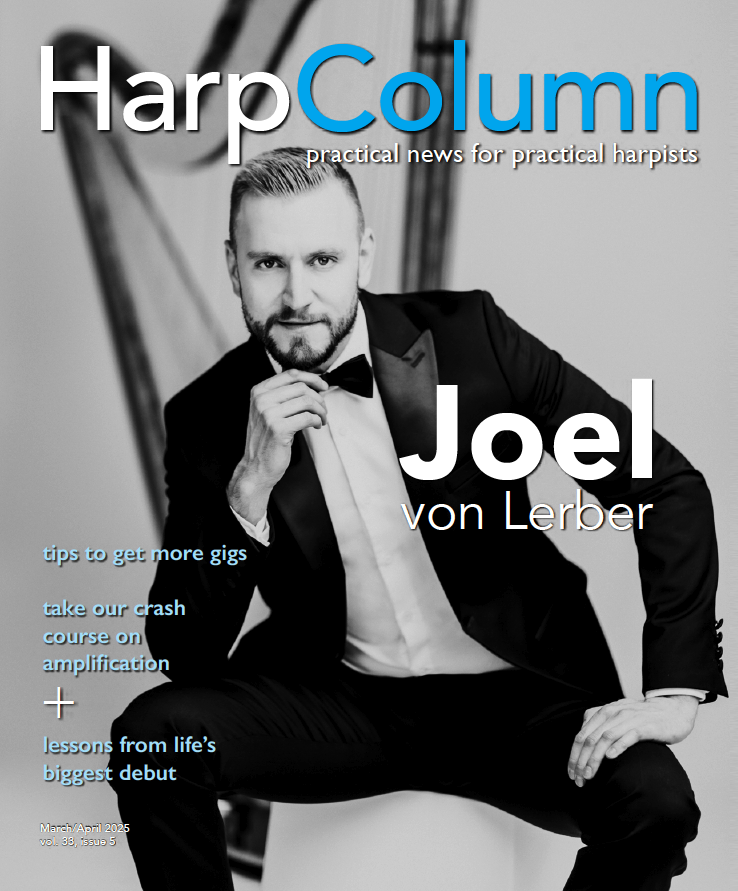Home › Forums › Coffee Break › If anyone has had strabismus surgery as an adult……
- This topic has 4 replies, 3 voices, and was last updated 11 years, 9 months ago by
sherry-lenox.
-
AuthorPosts
-
June 29, 2013 at 6:29 pm #112704
sherry-lenox
Participant………could you post your experiences please? My visual problems have been an enormous hindrance to me since beginning harp studies 6 years ago, and I have recently been examined by a specialist who believes that this surgery, on both of my eyes, could help me to be able to use harp music more comfortably.
Naturally, I’m very apprehensive about surgery but also very eager to see better. My prism lenses can no longer be made to correct my vision.
The best outcome I’d be anticipating would be no glasses at all, or glasses with much simpler prisms. I presently wear trifocals with prism corrections over all three levels of vision. Thank you for your input!
June 29, 2013 at 6:45 pm #112705Gretchen Cover
ParticipantSherry,
I have dealt with a lazy eye and my son had near focusing problems as a child. Both of us did vision training with a developmental optometrist. My lazy eye is better but not corrected. My son has no vision issues and the vision training helped keep him from being nearsighted. He is 24 and does not need corrective lenses. Vision training is often used to treat strabismus.
My suggestion to you is to check out http://www.strabismus.org. I would find out if you have a development optometrist in your area and get a second opinion. I would get a second or third opinion regardless before any surgery on my eyes. You may want to ask if your doctor will let you talk to patients who have had this surgery.
Are you able to get task glasses that you would use only for harp playing?
June 29, 2013 at 7:28 pm #112706sherry-lenox
ParticipantThank you for your response, Gretchen. Although my son also received vision therapy as a child and responded well to it, my situation is double vision, and it is to the extent that it is no longer possible to have glasses of any kind made to correct it.
I am thoroughly familiar with the most interesting sight you have mentioned!
July 2, 2013 at 4:03 am #112707james-predovich
ParticipantWhat a lot of people fail to realize is that most insurance companies will NOT pay for the vision therapy but are more than willingly pay for the strabismus surgery itself. I think I take the prize when it comes to most eye related surgeries (11 of them!) and two of those were strabismus surgeries on both eyes. The first surgery was done when I was 12 and I later had a “touch up” surgery when I was 21. I started harp when I was 17 so I did not notice a marked difference playing the harp before vs. after. The biggest thing for me was the confidence factor knowing that both of my eyes were straight and in line with each other as i was extremely self conscious about it. The recovery time took about two weeks I believe and your eyes will be bloody looking (the sclera will be red and slightly sensitive). It’s my understanding that this is a fairly common procedure and one you should not fret about! I don’t know how old you are but if you’re no longer a spring chicken your brain will be used to “seeing” things a certain way so you will have to retrain your brain so to speak after the surgery to get accustomed to ‘correct’ vision. I do suggest getting a second, third and fourth opinion and if majority rules then you should probably go ahead and do it. Please let me know if you have any other questions!!
James
July 2, 2013 at 12:47 pm #112708sherry-lenox
ParticipantThank you James. I actually remember stereoptic vision, but have not been able to perceive depth since cataract surgery three years ago.
My ophthalmologist had strongly recommended surgery, and referred me to the pediatric surgeon who will be doing the work. She was trained at an internationally recognized clinic, and is held in high esteem by her professional peers. Both my eyes turn in, but my right eye turns in and up, and although I try to look at the strings as little as possible, every shift from strings to printed music requires a conscious shift of what I’m seeing through my trifocal prisms.
Working on the Naderman Sonatas has sort of pushed me over the edge, although all music reading is difficult because all the notes have little shadow notes with them, so it’s hard for me to see whether they’re on lines or spaces. Anything above or below the staff is all but unusable.
Without glasses, I have constant double vision, but oddly enough, most people who know me don’t realize my eyes are crossed at all.
Thanks again…… -
AuthorPosts
- You must be logged in to reply to this topic.





